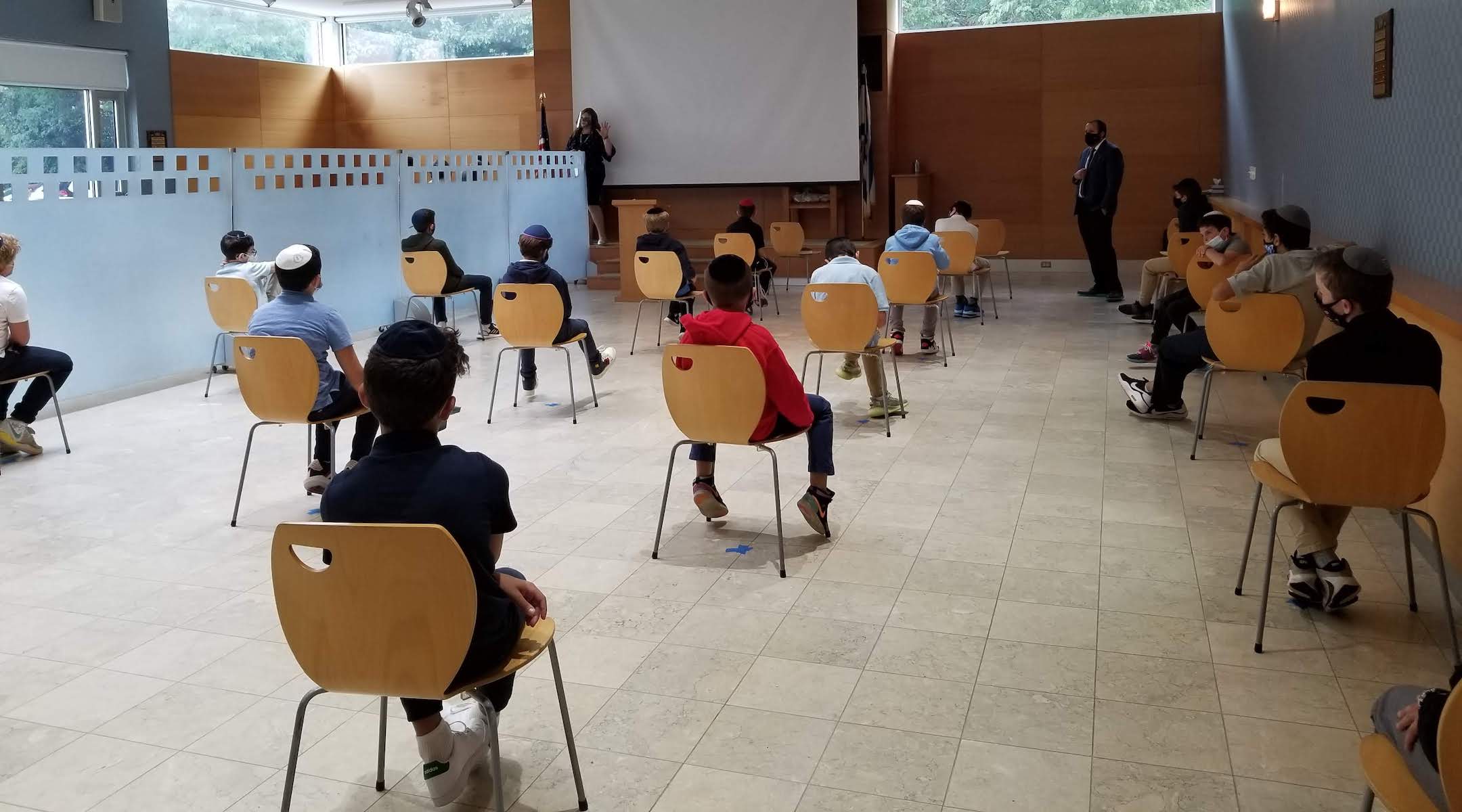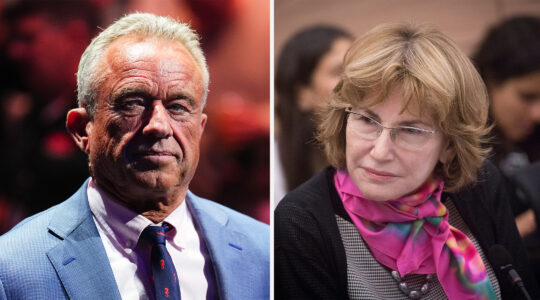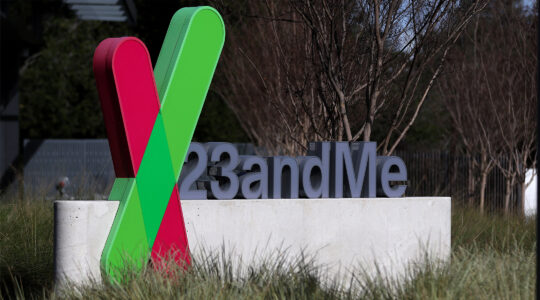(JTA) – One New York City private Jewish high school shut down Monday after two students in 11th grade and two students in 12th grade tested positive. Several students in the younger grades exhibited symptoms.
In a boys’ yeshiva high school in New Jersey’s Bergen County, a suspected COVID case in an 11th grader sent the entire grade home for quarantine.
In Long Island, approximately 15 to 20 families were asked by one school to quarantine after they were found to have attended a wedding of about 200 people.
“We spent a lot of time, energy and resources getting school ready for a full reopening,” said Rabbi Jeffrey Kobrin, head of school at North Shore Hebrew Academy, the school that asked families to quarantine after the wedding. “Our concern had always been what would happen when the kids were not in school.
“If I sound exhausted, I am,” Kobrin added.
Just weeks into the beginning of the new school year in which schools have spent hundreds of thousands of dollars on Plexiglas shields, personal protective equipment, teacher training and reconfiguring classrooms, the Jewish day schools that hoped their smaller sizes and tight-knit school communities would keep them open through the pandemic are already beginning to close or quarantine students.
A number of schools have been forced to quarantine classrooms or grades after positive cases or exposures of students to positive cases. In Chicago, the Rochelle Zell Jewish High School switched to remote learning just three days after reopening when two faculty members tested positive. In the case of Ramaz Upper School, a high school on Manhattan’s Upper East Side, the entire high school was shut down for two days and transitioned to distance learning after four students tested positive and several others showed symptoms of COVID-19. (The preschool, lower and middle schools, which are in a different building, remain open.)
For many schools, there’s little that can be done to stem the new cases. That’s because the virus is likely being transmitted outside of school, where the strict protocol meant to keep students and teachers safe are not enforced. The cases are likely developing from the interactions outside of school buildings – weddings, parties, Shabbat meals and playdates – that school administrators are struggling to control.
In Bergen County, seven Orthodox day schools sent a joint letter Aug. 26 outlining expectations for the coming weeks: Families that fly anywhere or travel to a hot-spot state for the High Holidays would need to quarantine for 14 days before returning to school, the letter said, and all attendees at bar and bat mitzvahs would have to wear masks.
“The current threshold for school closing is a relatively low number of positive cases,” they wrote. “Only by our joint efforts can we individually and collectively do our part to enable our community schools to remain open, an effort that helps all of us, especially our children.”
By early September, at least five of those seven schools had notified parents about cases or exposures in the school. They included students who tested positive or were exposed to someone who tested positive and faculty who were exposed to someone who tested positive.
One school emailed parents begging for cooperation on social distancing guidelines outside of school after several families in the area gathered for a Shabbat meal and a parent at the meal tested positive.
To some, the cases in schools and the quarantines and classroom closures that follow are inevitable.
“Whenever they would have opened, it would have happened,” said Dr. Hylton Lightman, a pediatrician in Far Rockaway who tested hundreds of students at local Orthodox day schools before school started. Several Long Island schools required testing and kept those who tested positive out of school to quarantine. “Schools can control a certain amount … but the parents also need to show they’re mature enough to follow these guidelines.”
Lightman said he’s noticed a surge of anxiety over the recent upticks in cases in his community of Far Rockaway and other Orthodox communities in the New York area. In the last few weeks, his office has received as many as 40 to 50 calls a day from parents anxious about their children possibly exhibiting COVID symptoms.
“The anxiety level from the parents and the children has escalated astronomically,” he said.
At the Moriah School in Englewood, New Jersey, no classrooms have had to quarantine due to exposure, though one faculty member has. But “we’re just waiting for it,” Erik Kessler, the school’s executive director, said of the possibility that a positive case would cause a cohort of students to quarantine.
“I think this is what we expected,” Kessler said of the positive cases and exposures causing quarantines of classes in several local schools. “We were hoping that people would stay within their pods but we’re realistic, as well.”
The roller coaster at New York-area Jewish schools comes as Israel prepares to shutter its schools for several weeks, amid rising cases there. There, many classes and grades have been sent to quarantine since schools reopened Sept. 1, and during the upcoming closure, it is not clear whether children in all grades will receive instruction online.
For the New York and New Jersey schools, learning is continuing from a distance even as schools close or quarantine individual students or classrooms. In addition to outfitting schools with Plexiglas barriers and new distanced desk arrangements, many schools have spent the summer installing cameras in classrooms for students to participate from home in case of quarantine. Some schools have spent time and money training teachers to improve the Zoom teaching experience, with the understanding that some closures or quarantines would be inevitable.
Daniel Rubin, a father in Queens whose three children returned to in-person schooling last week, said he still believes reopening schools is the right decision.
“I maintain that right now schools are practically the only place outside of homes that are actually enforcing some degree of distancing/masking, and so it’s not the schools I’m worried about,” Rubin said. “If a school needs to shut down, it’ll shut down.”
But with the High Holidays approaching, bringing extended family gatherings over Rosh Hashana and social meals shared by families and friends over Sukkot, and upticks in several heavily Jewish neighborhoods in New York City, several schools in New York and New Jersey are desperately trying to avoid letting the holidays further derail in-person schooling.
The Hannah Senesh Community Day School in Brooklyn asked families not to travel for the holidays, to only attend High Holiday services with 50 people or fewer if outdoors or at 33% capacity if indoors, to ensure indoor services take place in spaces with HVAC systems that have been vetted by experts, and to maintain a distance of 12 feet from other participants while singing.
“If you attend a communal prayer service that does not follow the above guidelines, you are asked to self-quarantine for 14 days,” the school wrote.
Solomon Schechter of Bergen County sent out a notice to their families, as well. “I implore everyone to make responsible choices during the Jewish holidays and for the duration of the pandemic,” wrote Steve Freedman, head of the school.
This story has been updated to clarify that while Ramaz’s high school is closed, its preschool, elementary and middle school grades remain open.
JTA has documented Jewish history in real-time for over a century. Keep our journalism strong by joining us in supporting independent, award-winning reporting.






